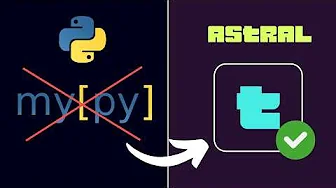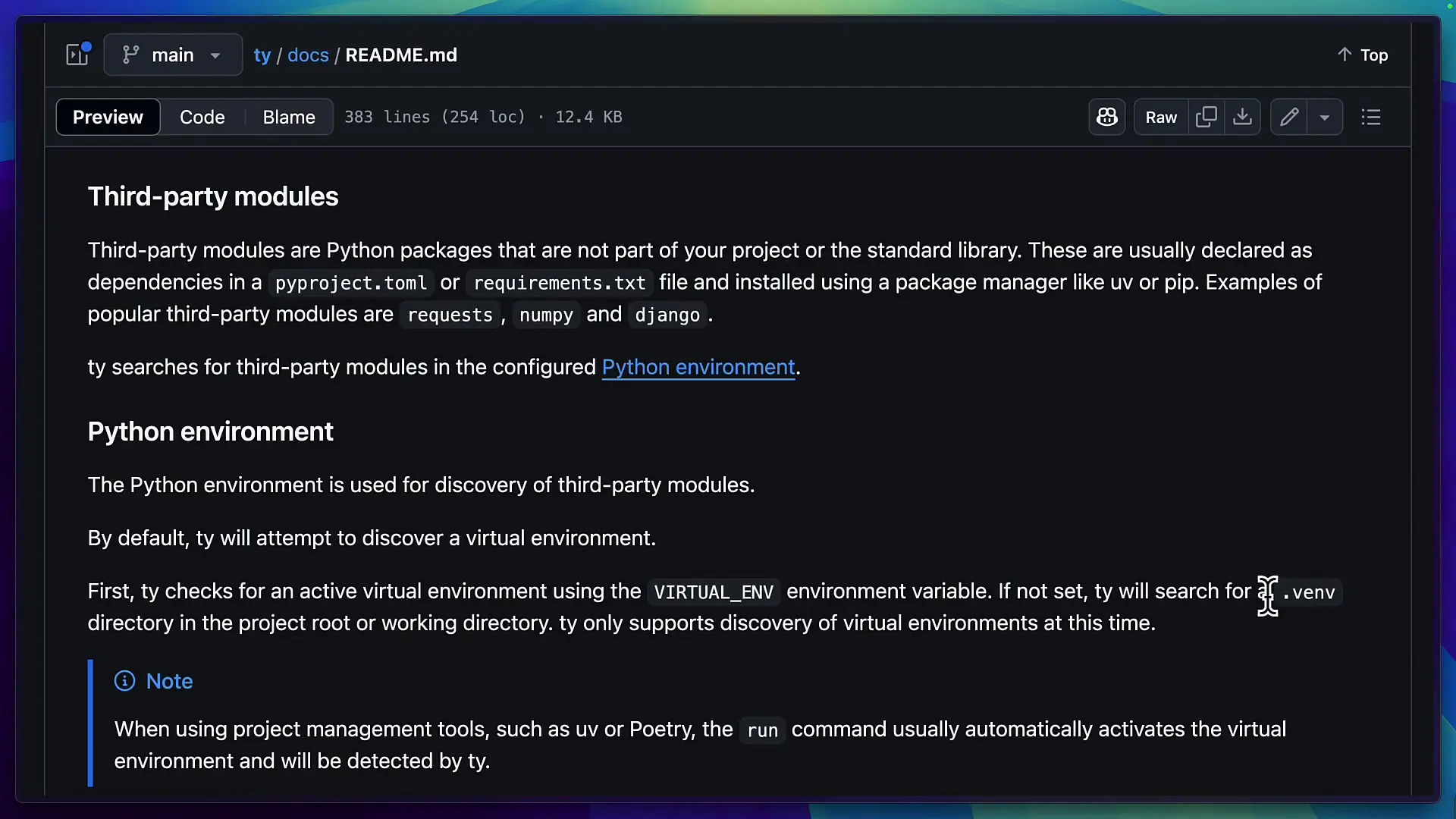
Python developers who use type hints have long struggled with MyPy's limitations: slow performance, confusing error messages, and poor third-party support. Astral, the team behind popular Python tools like Ruff and UV, has created a solution with TY - a blazing fast Rust-based type checker that promises to address these pain points and more.
Speed Comparison: TY vs MyPy
The difference in performance between TY and MyPy is striking. When tested on the Home Assistant repository - an open-source home automation platform with over 200,000 lines of Python code filled with type hints - the results speak for themselves:
- MyPy: 113+ seconds to type check the entire project
- TY: Under 7 seconds for the same project
- Result: TY is approximately 20 times faster than MyPy
While the performance gap is most noticeable on large codebases, even smaller projects will benefit from TY's efficiency. This dramatic speed improvement allows developers to get faster feedback during development, making the type-checking process much less disruptive to workflow.
Intelligent Module Discovery

One of TY's standout features is its intelligent module discovery system. Unlike MyPy, TY automatically searches for first-party modules in the source directory, eliminating many configuration headaches. For projects with non-standard structures, you can easily update the pyproject.toml file to specify your custom configuration.
TY also automatically searches for virtual environment files even when you're not in a virtual directory. This prevents those frustrating "missing stub" errors that MyPy users frequently encounter when working outside virtual environments. The python astral package's approach to module discovery significantly reduces the configuration overhead that has long plagued python typed-ast implementations.
Customizable Type Checking Rules
Similar to MyPy overrides, TY offers flexible rule configuration through multiple interfaces:
- pyproject.toml file configuration
- Dedicated ty.toml configuration file
- Command-line interface options
- Inline code suppression comments
For example, to ignore an invalid type form error across your project, you can add a rule with a value of "ignore", "warn", or "error" in your configuration file. For more targeted control, TY supports inline suppression comments that can be applied to specific lines of code:
# Standard type ignore comment
result = some_function() # type: ignore
# TY-specific rule suppression
result = some_function() # ty: ignore[invalid-type-form]This granular control over type checking allows teams to gradually adopt stricter typing rules while maintaining productivity on existing codebases.
Clear and Actionable Error Messages
Another significant improvement TY offers over MyPy is the clarity of its error messages. Where MyPy often produces cryptic errors that leave developers scratching their heads, TY provides detailed, actionable information:
- Exact line where the type error occurs
- Clear explanation of the problem
- Line number reference for easy navigation
- The specific rule that was violated
- Instructions on how to disable that particular type of error
These improvements make debugging type issues significantly easier, especially for developers who are new to Python's type system or working with complex type hierarchies in the python typed-ast ecosystem.
VS Code Integration
While command-line type checking is useful, most developers prefer seeing type errors directly in their editor. TY offers a VS Code plugin that integrates seamlessly with your development workflow, showing type errors inline as you code.
The VS Code plugin highlights errors in your code and provides detailed pop-up windows with:
- Explanation of the type error
- The specific rule that was violated
- Options to disable the rule for that specific line
- Quick-fix suggestions when applicable
This integration makes it much easier to address type issues as you code rather than waiting for a separate type checking pass, improving the overall development experience for projects using python astral package components.
Current Status and Community Reception
Although TY is still in preview and not yet considered production-ready, it has already garnered over 7,000 stars on GitHub. This enthusiastic reception demonstrates the Python community's desire for better type checking tools that can match the quality of tooling available in other languages like JavaScript.
The rapid adoption of TY suggests that the future of Python type checking may be shifting away from MyPy toward faster, more developer-friendly alternatives built with performance in mind.
Conclusion: Is TY the Future of Python Type Checking?
TY represents a significant advancement in Python type checking technology. With its Rust-based implementation delivering dramatic performance improvements, intelligent module discovery, clear error messages, and excellent editor integration, it addresses many of the pain points that have made type checking in Python less pleasant than it could be.
For Python developers who have struggled with MyPy's limitations, TY offers a compelling alternative that might just change how you approach type checking in your projects. As the tool matures beyond its preview stage, it has the potential to become the new standard for Python type validation, bringing the language's developer experience closer to what users of statically-typed languages have long enjoyed.
Whether you're working with python astrology libraries, building data science tools, or developing web applications, TY's performance and usability improvements make it worth considering for your next Python project that uses type hints.
Let's Watch!
TY vs MyPy: Why Astral's New Type Checker Is 20x Faster for Python Projects
Ready to enhance your neural network?
Access our quantum knowledge cores and upgrade your programming abilities.
Initialize Training Sequence